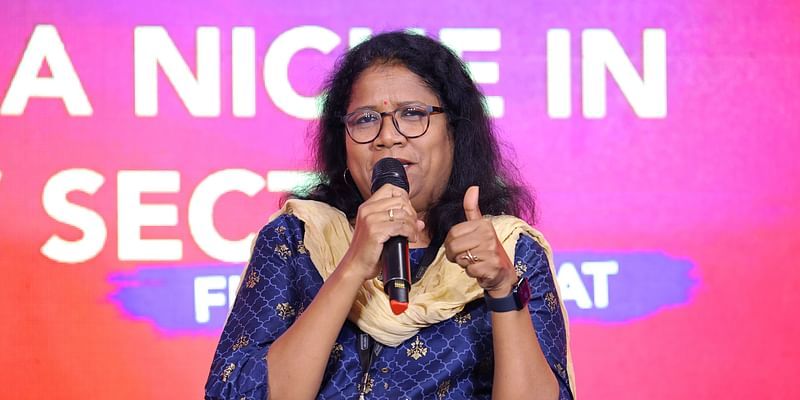
Hema Annamalai built at a time when there were only a handful of auto companies thinking about electric vehicles (EVs). And while the blood, sweat, and tears she poured into building Ampere were hers, she credits the government’s Faster Adoption and Manufacturing of Hybrid and Electric Vehicles (FAME) for the success Ampere has seen.
“FAME I and FAME II supported and helped early movers like us significantly,” she says, taking the stage at TechSparks 2023, YourStory’s flagship startup-tech event.
But now, with adoption already underway, she believes it’s time for policymakers to look at smaller Indian cities and take much-needed steps to support innovation there.
Two-wheelers account for a staggering 90% of India’s EV market, with more than 65% traversing the rural terrain. Given this reality, Hema believes it is imperative that policies embrace inclusivity and extend their reach beyond urban centres.
“Why can’t policies be made to include people in rural and lower-tier India? If you create inclusive policies, it will not only catalyse innovation but also create jobs locally,” she says.
FAME III, she hopes, will focus on incentivising and making it easier for startups coming out of smaller towns to innovate, build, and grow.
When prodded for specifics of what she’d want the policy to provide for, a novel suggestion emerged: the government can facilitate startups by offering manufacturing and R&D resources on a lease or rental basis.
This, she believes, can relieve founders from the daunting capital expenditure associated with these critical facets, and free up resources for more strategic purposes. Also, aligning government research institutes and labs with entrepreneurs and ensuring access to essential tools can help entrepreneurs build frugally and quickly, without stressing about finances.
Annamalai, of course, is already embedded in the system. She built Ampere out of Coimbatore, where she now mentors and helps hundreds of EV and e-mobility-focussed startups, even personally investing in ideas she finds value in. Through the society for EVs she has set up in Coimbatore, she also helps organise EV rallies that showcase innovative tech.
But the need for government push is imperative, she argues.
Bring talent back to India
Recalling her own journey building Ampere, Annamalai says one of the areas where India has fallen behind its global peers is building a controller—essentially the “brain” of the EV’s electrical system which is responsible for several key functions, including regenerative braking control, heat management, motor control etc.
“How long can we build without that expertise? Where are those guys? They’re not here, they’re in Silicon Valley, writing software,” she quips, calling for a dedicated mechanism to repatriate power electronics experts back to India.
She adds that if the government can help subsidise their salaries, it can prove very instrumental for startups, in general, as well as bolster EV innovation in India.
Edited by Affirunisa Kankudti










